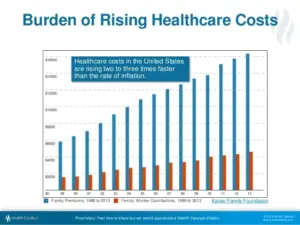Introduction: Why you might feel overwhelmed
When people go looking for health insurance, it’s often confusing. There are dozens of plan names (Bronze, Silver, Gold), different doctors in each plan, varying deductibles, co‑pays, and “in‑network vs out‑of‑network” rules. Then throw in changes in laws, subsidies, and timing, and it can feel like a maze.
That’s where an insurance broker comes in. A broker is like a smart guide who knows the maze well. They help you sort through all the options and find something that fits you. And yes — using a good broker can often save you money. This post explains how.
What exactly is an insurance broker?
Before we get into saving money, we need to understand who a broker is (vs an agent or just doing it yourself).
- Broker: Works for you, the consumer. They compare multiple insurers, plans, and options. Their job is to advise you and find the most suitable plan.
- Agent: Sometimes tied to one insurance company. They often sell that company’s plans; their options are more limited.
- Doing it yourself: You go to the marketplace (or insurer websites) and pick from what you see.
A broker has a broader view. They know the fine details of many plans, they see patterns in costs, and they can spot deals you might miss.
7 ways a broker can help you save money (or avoid losing money)
Below are key ways a broker brings value — not just in nickels and dimes, but in real savings and protection.
1. Access to more plans, not just the obvious ones
When you shop directly, you tend to see only the “standard” plans on the marketplace. A broker often has access to additional plan options — sometimes less obvious ones that insurers offer but don’t publicize as much. These extra options might have better networks, lower deductibles, or special features that fit you.
Because brokers see many customers, they might know of plans that are “under the radar” but good value.
2. Better plan matching to your needs
Suppose you know you go to the doctor 4 times a year, take one regular medication, and seldom go to specialists or ER. Some plans might look cheap but be terrible once you use benefits. A broker helps you estimate your use:
- Which plans balance premium + out-of-pocket cost (deductibles, co‑pays)?
- Which network includes your preferred doctors and hospitals?
- Do you qualify for cost‑sharing reductions or subsidies?
By analyzing your health habits and needs, a broker can recommend a plan that fits — which might cost a little more in premium but save you a lot in surprises later.
3. Understanding subsidies and tax credits
Health insurance under the ACA includes subsidies (premium tax credits) for people with certain income levels. These help reduce your monthly premium. But the rules are complex:
- Your income estimate for the year matters (if you project too high or too low, your subsidy calculations may change later).
- You have to report your income and reconcile in your tax return.
- If you qualify for extra help (cost-sharing reductions), it only applies for certain plan types.
A broker knows the subsidy rules and can help you avoid common mistakes. They can:
- Estimate what subsidy you should get, based on income and household size.
- Choose a plan that maximizes benefit given your subsidy.
- Alert you about risks (for example, if your income might change midyear).
If you mess this up, you might end up owing money back, or choose a more expensive plan than needed.
4. Negotiating or “having more leverage”
In some cases (especially outside the public marketplace), brokers have relationships with insurers. They bring volume (many clients) to insurers, so the insurer listens to their feedback. This can lead to:
- Better pricing being offered to broker clients.
- Special rate “arrangements” or incentives that the public doesn’t see.
- More flexibility or exceptions (with preapproval) for particular medical needs.
Thus, a broker can sometimes get you a deal that you wouldn’t find simply by going direct.
5. Spotting hidden costs and fine print
Insurance contracts have lots of fine print: “in‑network vs out-of-network,” “prior authorizations,” “step therapy” for drugs, network changes midyear, etc. Many people pick a plan based on monthly premium and then get crushed by hidden costs.
A broker’s job is to read those details and flag risks:
- “Your favorite doctor is going out-of-network next year.”
- “You may need a referral, and not meeting that means high fees.”
- “Your plan has a narrow drug formulary; your medicine might cost extra.”
Catching those issues ahead of time saves you from overpaying for doctor visits, medications, or surprise bills.
6. Help with enrollment, eligibility, and paperwork
No one wants to wrestle with confusing forms or miss deadlines. A broker guides you through:
- Ensuring you’re eligible and verifying your documentation (income, identity, citizenship/residency).
- Submitting enrollment accurately (mistakes can delay or deny your coverage).
- Helping you with appeals or corrections if something goes wrong.
If a mistake causes coverage gaps or denials, the cost to you can be large. A broker helps reduce that risk — which is a kind of “indirect savings.”
7. Long-term support and checking mid-year changes
Your health and finances change. A broker can:
- Check midyear whether there’s a better plan (if you have a qualifying event).
- Help you when your income changes so you don’t get penalized at tax time.
- Remind you to review annually (don’t just auto-renew blindly).
Over a multi-year horizon, that guidance can save you hundreds or even thousands by avoiding bad enrollments or unexpected penalties.
Real-life example: How it works in practice
Here’s a simplified story:
Meet Jane.
- Jane is 35, works a job paying about $45,000/year.
- She expects to visit her primary doctor 3 times per year, occasionally a specialist, and take one prescription.
- Jane is shopping for an ACA plan in Florida.
If Jane does it alone:
- She sees three plans: Bronze A, Silver B, Gold C.
- Bronze A has very low premium but high deductible. If she gets sick, she pays a lot out-of-pocket.
- Silver B looks okay. Gold C is expensive.
- She guesses Silver B is best and picks it.
If Jane uses a broker:
- The broker analyzes her income and projects her subsidy.
- They find an off-market variant Silver plan (or a plan the broker has access to) that’s only slightly higher premium but much better in‑network provider access, lower hospital cost, and covers her medication cheaply.
- The broker also spots that for her income, she qualifies for “cost-sharing reductions” but only if she picks a “Silver” tier; they steer her there.
- The broker helps with the subsidy paperwork, verifying income.
- The result: Jane ends up paying maybe $20 more/month in premium but saving $300+ over the year in doctor bills, medication, and surprise network surcharges.
That’s real savings, not hypothetical.
Counterpoints & caveats (so you know what to watch out for)
To be fair, using a broker has pros and also things you should watch out for:
- Broker fees: Many brokers are paid by insurers (commission), so their advice should be impartial. A good broker is transparent; ask about their compensation.
- Limited brokers: Some brokers may only work with certain insurers, just like agents. Make sure yours has wide access.
- Quality matters: A great broker makes a difference; an inexperienced one could make errors. Look for credentials, reviews, and trust.
- Time-lag risks: If you delay working with a broker until the last minute, you might miss deadlines or run into limited options.
Despite these, many people still find broker help worthwhile — especially when the difference can be large.
Why it’s especially important now (2025–2026 timeframe)
Given the expected changes in ACA, rising health costs, subsidy changes, and stricter rules (as we discussed earlier), the broker’s help becomes even more valuable:
- The subsidy and eligibility rules are under change; a broker can help you navigate the new rules.
- You’ll want to shop early and not leave it until the last minute.
- With rising costs, choosing the wrong plan could cost more than ever.
- More verification and stricter paperwork means mistakes are riskier now.
- Many people will be trying to optimize subsidy vs cost; a knowledgeable broker helps you avoid subsidy traps.
So your time investment in working with a broker is likely to pay off more now than in calmer times.
Tips for choosing and working with a good broker
Here are guidelines to make sure you get a broker who really helps:
- Ask about their access
“Which insurers/plans do you work with?” You want someone not tied to a single insurer. - Ask how they get paid
Commission? Flat fee? Transparent? Good brokers will share this willingly. - Check credentials and reviews
Look for licensure in health insurance, good testimonials, or recommendations. - Ensure they guide you through all costs
Don’t want someone who only looks at monthly premium. They should consider total cost. - Ask about ongoing help
Will they stay available midyear if income or family situation changes? - Require transparency
Ask them to walk you through the decision: “Why this plan over others?” - Start early
The earlier you talk to a broker, the more time you have to compare, fix mistakes, and avoid pressure.
What to expect in a meeting with a broker
When you meet (in person or virtually), here’s what usually happens:
- They ask about your health and usage
How often you see doctors, what medications you take, whether you have specific conditions. - They ask about your income and household
To estimate your subsidy eligibility. - They show you plan comparisons
Side by side: premium, deductibles, out-of-pocket max, network, drug coverage. - They may show “hidden best options”
Plans you didn’t see on your own. - They help with paperwork
Enrollment, verifying income, uploading documents, etc. - You choose together
Final pick is still yours. The broker helps you understand trade-offs. - You keep contact
Broker often helps later if something changes or if there’s an error.
What you can do now (action steps)
- Find a good local broker (or one licensed in your state).
- Prepare your income estimates, health history, and preferred doctors list.
- Ask brokers for plan comparisons (at least 3 options).
- Don’t just chase lowest premium — count all costs.
- Use the broker’s advice to enroll early, not late.
- Revisit your plan annually (with the broker) to see if a better option appears.
Conclusion: A smarter, safer way to shop
Buying health insurance is one of those big financial decisions many people dread. There’s risk in picking the wrong plan, paying too much, or having surprise costs. A skilled insurance broker acts like your advisor, interpreter, and advocate. They help you:
- See more plan options,
- Understand true costs,
- Navigate subsidy rules,
- Avoid hidden traps,
- Get help with paperwork,
- Stay supported year-round.
In many cases, that results in real dollar savings — not just by shaving a few bucks off your premium but by preventing expensive mistakes later.




